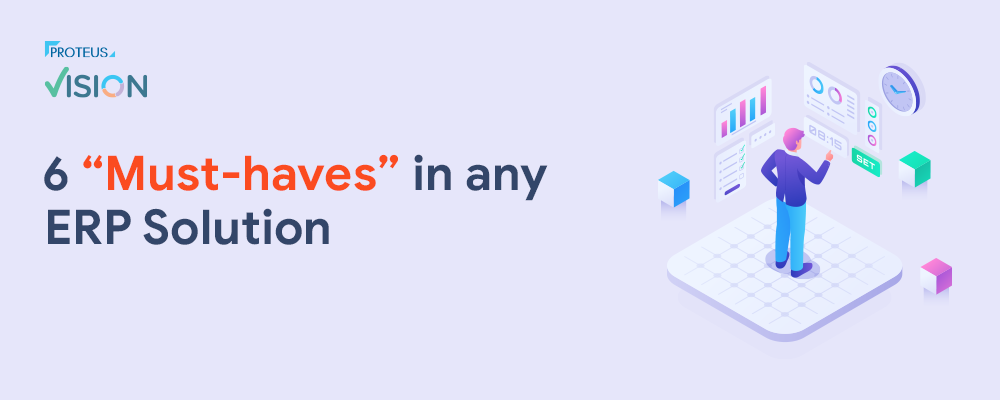
Typically, a functional fit, cost of ownership, vendor experience, and credibility are considered to evaluate ERP systems. There are more elements that can help you choose the best solution.
India is one of the best business-growth hubs in the world. Companies selling within India must work with complexities of trade, statutory compliances and vast choice of business channels. When you evaluate an ERP solution for this environment, you must insist on an ERP that is designed for India. Some of the important considerations in your evaluation should be:
A lot of small and medium size business are apprehensive of implementing an ERP as it is perceived to be a long drawn and a painful exercise. There is the fear of having to learn another skill-set that would require months of training. In many cases, organizations moving from traditional accounting systems to an integrated ERP system are overwhelmed with the thought of having to have highly skilled and additional resources to implement and manage them. The fact of the matter is that an ERP makes your life simpler. An ERP can get implemented in a few days provided the solution has a specific fit for your industry and has the people who understand your industry.
To evaluate the right ERP that does not give you sleepless nights, here are some things that you must consider in a goof ERP.
It would be wrong to say that every industry works the same way. Not only do they have different needs to run their businesses, but even the compliance needs are different. Here is a short list of what an ERP should be able to give you in its industry-specific templates:
Engineering Industry: Capability of managing nested Bills of Material for large inventories and assembly components. Have capabilities to plan for material, machinery, tools, fixtures, and consumables.
Infrastructure and Construction Industry: The ERP should be able to plan for materials across multiple locations. It should have utilities for estimating projects, budgeting for them, and monitoring them financially. It should be able to help in the seamless tracking and managing of your assets and equipment across various projects.
Across industries, a few common things that the ERP needs to address clearly are:
ERPs can reduce a lot paper-work linked with authorization and approvals. It should let you easily build workflows to help electronically route transactions based on your company’s criteria for approval. Since most tasks in any business operation are linked and sequential, the ERP solution should ensure that you are equipped with a very strong business workflow, that automates these tasks. When one task is completed, it automatically guides users to their next task.
Areas where this is applicable, and companies can see immediate benefit are:
Growth in business is one of the prime drivers for any organization to start thinking of ERP solutions. Growth is normally achieved by increasing volumes and profitability of your existing business or by adding new business lines. With growth comes the need for all your business systems to be scalable. This includes your ERP system as well. Keeping this scalability in mind, your evaluation must ensure that:
Reconciliation is needed to ensure that the transactional data in the ERP is the same as the data from third-party sources. When using an ERP System, the solution needs to have very good data aggregation and validation, which is critical for avoiding reconciliation issues. Since any organization’s data is spread in multiple places, spread over years and spread across business areas, it is important that the ERP System helps you with easy integration of data sources for the correct information to be provided, every time.
“Vision” was created specifically for the Indian industry. It has evolved over time to ensure that it not only meets the statutory requirements in India, but also simplifies complex processes of various industries. “Vision” has an out-of-the-box solution to address the complexities of trade and supply chain, manufacturing, job contracting, and commercial nuances.
We can setup an Online Demo Access or a Proof of Concept for you based on your convenience. Do connect with us for knowing more about Vision by filling out this very short form. One of our core team members will connect with you to help you in your evaluation.